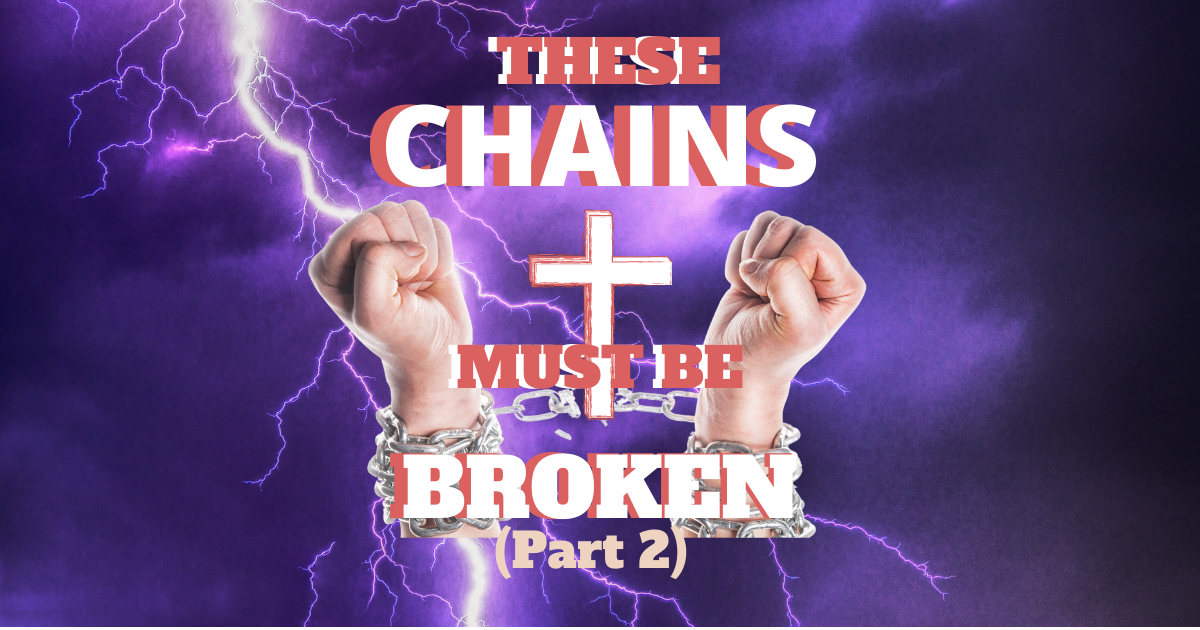There are underlying conditions implied in the Bible in which God moves speedily to miraculously intervene and act upon our circumstances. If we use these as basis for our aggressive petitions to Him, we will get His attention without delay. Among these conditions three stand out prominently. Let me call them, defense of authority, defense of purpose, and defense of praise.
Defense of Authority
Any situation that challenges God’s authority will move Him to act promptly. God will always rise to defend His authority whenever it is challenged. Remember that God is all-in-all and will not be intimidated by any circumstances. He wants all to know that He is in complete control of the affairs of the universe. That does not mean He does this to impress anyone like humans normally do. All things were made by Him and for Him and He has control over them all. He has control over the land, the sea, the sky, your body, your life, and everything that pertains to His creation. Think about Psalm 24:1, which says that “the earth is the Lord’s and the fullness thereof, the world and they that dwell therein.” This also means that all forms of enemy that operate here on earth are under God’s controlling authority. Proverbs 21:1 confirms that “the king’s heart is in the hand of the Lord, like the rivers of water; He turns it wherever He wishes.” Hebrews 1:3 says Jesus upholds all things by the word of His power. God needs to do this to have things under control according to His plan. This is good for you and me because, when things are getting out of alignment in our lives to thwart the order that God has put in place to help Him fulfill His plans, we can approach Him to restore order; but you must first respect His authority and allow Him to be that authority over your life.
Situations that challenge God’s authority is in essence competing with God and telling Him that He cannot solely claim the title deed to His creation. This is a serious offence against God and will not be taken lightly by Him. That is what Lucifer did that made him lose his place in heaven and he is to be brought down to the pit (Isaiah 14:12-15). Moses is an example of someone that allowed God to be the authority over his life. Because of his submission, his sister, Miriam, was visited with leprosy when she questioned Moses’ authority which was in reality, God’s authority (Number 12:1-10). Korah, Dothan, and Abiram were guilty of the same rebellion against Moses and Aaron, which caused the ground to open to swallow them up (Number 16). God rose to defend King Hezekiah and Judah overnight when the people of God were threatened by the invasion of Assyrian army and the name of God was blasphemed (Isaiah 36, 37). Under such circumstances, God will rise at once to defend His authority. Any situation in your life that challenges God’s sole authority over you is bound to fail if you know how to present it to God in prayer. When you present this in prayer, make it about God, not about you, and watch God defeat these enemies. Genuinely pray like Hezekiah when he petitioned God about the threat of Assyrian king Sennacherib as blasphemy against God. God rose immediately for Shadrach, Meshach, and Abednego to deliver them from the enemy’s fire because they stood to defend God’s authority. He rose overnight to save Daniel from lions’ den; this is because His authority was challenged. Petitions presented in this way will normally gain God’s attention and response speedily.
Defense of Purpose
Any situation that threatens God’s purposes will move Him to act speedily to bring about orderliness. God is a God of purpose. He made all things for a purpose. He assigns responsibilities for a purpose. He created you for a purpose. God has a plan for every facet of your life, from the time you were conceived in your mother’s womb to the time you will return to Him. If you walk in God’s way and allow Him to use you to execute these purposes, you will become His project and will be treated as a jewel; a vessel of honor meant for His use. In this case, what you do, the vision you have, the direction you go in life, are not about you, but about God. Your desires will then be His desires; your problems will be His problems; your enemies will become His enemies; your victory will be His victory. Any situation in your life that threatens the fulfillment of His purpose for your life will become God’s concerns, and His battle. God will take it personal and bring about order where there is a chaos. This does not just happen naturally; you must know how to present this to God in prayer. When God first called Abram, He assured him that because he was called to fulfill His purpose, He would curse those that would curse him and bless those that would bless him (Genesis 12:3). The way God defended Abraham in his life made me to conclude that God does not protect man, but His purposes. He is indeed no respecter of persons. He did not protect Abraham because it was Abraham; He protected His purposes in Abraham because he submitted to God. God would have done the same if it was another person, as long as that person would submit as Abraham did. For the same reason, He protected Moses. But when Moses disobeyed God in the wilderness, He disqualified him, and chose Joshua, because Moses by his disobedience posed a threat to God’s purposes for Israel. I have seen occasions when God miraculously defended even people who are not yet saved as God’s children. Some of them from the womb of their mothers, and others from delicate situations. Kenneth E. Hagin was miraculously delivered from incurable blood disease at age 17 when he was still an unbeliever. History reveals the mighty works that God used him to do before he passed. That happened because of God’s purpose in him. If he had died at age 17, all his exploits would have died with him.
Defense of Praise
The third condition that moves God to action is the defense of praise. God has commanded that we should offer praise to Him. In defense of this command, He will do what it takes to respond quickly to anyone who can truly praise Him. God inhabits the praises of Israel (Psalm 22:3). The New King James Version states this more clearly, “but you are holy, enthroned in the praises of Israel.” In other words, God’s throne is established in the life that genuinely praises Him. He is attracted to the life that praises Him. This further means that when God makes your life His throne and His dwelling place, every battle against you becomes His because as the occupant of the house, He is obliged to defend His house against external intrusions. Another way that praises work is that they give affirmation to God’s Lordship and kingship over our lives. Each time we praise God, we affirm that He alone is the Lord of our lives. By this act, we renounce our allegiance to other gods and place our total dependence on Him. Through praise we ascribe to God alone, credit for all that we are and have. Praise is an act of worship and true worship makes God’s heart merry. If we submit to God this way, He takes up His obligation to defend us as citizens of His kingdom when we are in crisis and are threatened by foreign mercenaries. We should remember that God created all things for His pleasure (Revelation 4:11). The angels and all humankind were created to praise Him. The trees, the plants, the animals on land and sea, and all other creatures praise Him in their own ways. Praises are often related to the acts of God and His being (Psalm 100). If you can think of who God is, His mighty works, and what He is able to do; and you are able to lift your voice like a trumpet to extol Him for these, you will quickly get His attention, and cause Him to move in His mighty power to act on your behalf. Try this out yourself, and verbally remind yourself of all the good things about you; you will feel a special strength welling up in you and the desire to do more. When you praise God for His acts, you are in essence telling Him, “If you could do that, you can as well do my own.” By this, you commit Him to speedily move on your behalf. While thanksgiving takes you to the gate of God’s temple, praise takes you into His court and presence (Psalm 100:4).
Praise is a major theme in the book of psalms. God reminds us in Psalm 50:23, “Whoever offers praise glorifies me.” There are too many people that cry unto God, but God is looking for those who will break the trend to praise Him. Crying is common in the ears of God, but genuine praise is rare from man. Therefore, anyone that can lift his voice to give God praise prior to crying and making his request will get His attention fast and will give God a break from the weariness of constant crying. Crying unto God without praise is like complaining, which God hates. When God’s people cried unto Him in the wilderness for fear of Pharaoh, God asked Moses, “why do you cry to me? Tell the children of Israel to go forward” (Exodus 14:15). It is time for you to go forward in life. Stop crying unto God and start to move forward in praise unto Him, and your problem will be turned around. I am not condemning crying unto God for help when in need; it has its own place in prayer. There is a place where each of them is most effective in prayer. We are often tempted to pour out our overwhelming problems unto God in prayers that we do not even create time to magnify Him for who He is and for what He did already; we allow our problems to consume us. We need to be God centered, not problem centered. God says that He knows our needs before we even open our mouths to ask (Matthew 6:8). The saints of God that got God’s attention in prayers learnt to first magnify Him before presenting their requests to Him. I am in no way condemning the legitimacy of crying to God. On the contrary, I am stating that praise should precede crying or presenting our requests. Three nations that teamed up to war against King Jehoshaphat were defeated by praise alone. The walls of Jericho were brought down by the power of God through praise offered by God’s people. The same can happen in your life if you know how to extol Him.
I read a story of a man who was miraculously delivered alive after he had been buried in a grave for several days. He came out to testify that a person visited him in the grave to feed him and sustained his life until God caused his voice to be heard from the grave by passers-by. The only conclusion of such situations is purpose. His deliverance made him to receive Christ and became a great evangelist for Christ.





Comments (0)